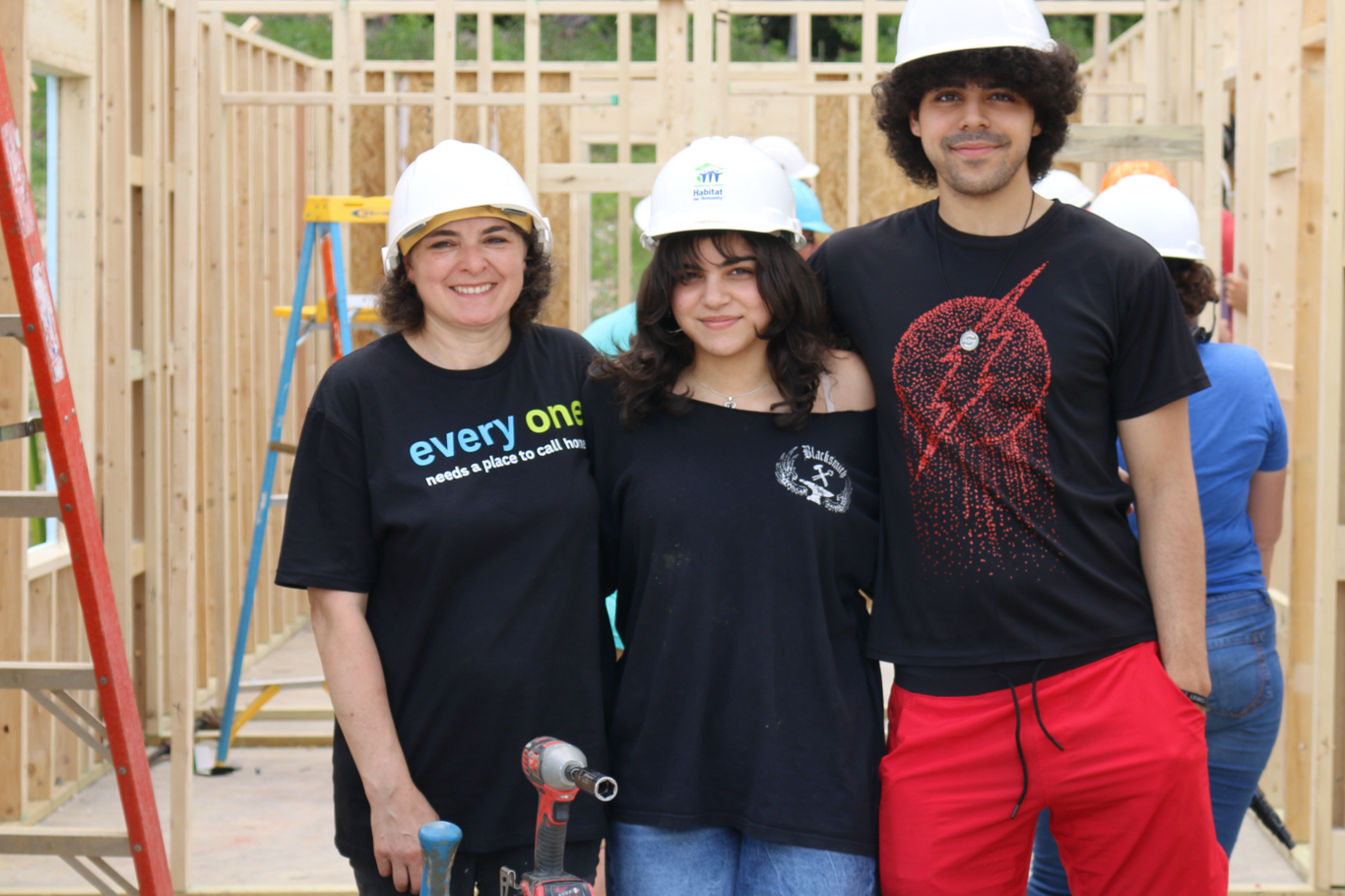The family moved to Hendersonville in 2013 because she found a job here, in the nonprofit retirement community, Carolina Village. She still works there today. “We came to North Carolina with nothing, not even a fork,” Ginger recalls. “I had my kids and nothing else.” As a single parent, Ginger had no choice but to work, so childcare was essential. With assistance from social services, she was able to enroll her youngest child into daycare. As a prerequisite, a worker had to visit their home and ensure the children were safe and healthy. At the time, Ginger was worried that child protective services may take her children from her because the place was nearly barren, but she was doing the best she could.
“We had a couch, mattresses on the floor, and the essentials for a kitchen.”
Her fears were absolved when the social worker cleared them for the daycare slot.
“God was with us.”
Thanks to her good credit, Ginger was able to purchase a vehicle with little money down. Her eldest son, a high school student at the time, also worked at Carolina Village (part time after school). For the entire first year they owned the car, Adham’s paycheck went to the car payment, and Ginger’s went to rent. It was an incredibly stressful time for the family. “I remember one time I ordered pizza, and the total came out to like $23. Even that was too much,” she says.
Since their arrival in Hendersonville more than 10 years ago, Ginger and her children have maintained housing through Hendersonville Housing Authority, although they have had to move several times. “I really didn’t have much of a choice,” Ginger says. “It is so expensive to rent an apartment.” For a while, the family of five was crammed into a three-bedroom apartment because it was the only unit available through Hendersonville Housing Authority. She didn’t complain because they badly needed a place to stay, she says. Instead, they placed a pull-out sofa by the front door, folding it up every morning to convert the space back into a family room, and Ginger shared a bed with her youngest daughter.
She previously applied for a new home through Henderson County Habitat for Humanity, and although separated with no contact nor financial support from her now ex-husband, she was not yet divorced on paper and she could not meet the minimum income requirements for a two-parent household. Years later, she returned and reapplied in one final attempt. “I told myself, if they don’t say yes to me this time, this is just never going to happen for me,” Ginger says. She has never owned a home in her life.
As her children grew, they faced another unpleasant reality of income-based housing: The calculated monthly rent factors the income of every fulltime earner in the household, increasing the amount owed when more adults are residing in the unit. As her two older children finished college and maintained their entry-level jobs, the family’s monthly rent skyrocketed.
A loving parent, Ginger was (and is) adamantly against putting adolescents out on the street as soon as they enter early adulthood. But to protect the family unit as a whole, the young adults recognized that they would have to leave, or their younger siblings and mother may wind up homeless as a result. “My heart was breaking,” Ginger says. “I was thinking, ‘I’m the only one they have.’”
To this day, Ginger is determined to give her kids, even as adults, a place they can come home to, any time they need, or just want, to. “You keep moving and moving; it’s not easy,” she says, reflecting on the nuances of living in subsidized housing, especially when family dynamics shift over time as children age. When her older children moved out, the HHA required the family to move to a smaller unit. Over the course of the last decade, the family has moved several times, all within the HHA inventory of housing. So why stay? When Ginger thinks about why the family moved to North Carolina, a state where they had no connections, she firmly believes, “God brought us here.”
“I’ll know that I am home when I’m in my own kitchen cooking, and my family is coming to eat together and spend time together under one roof.”
“When we came here, right away, I felt at home.” People were friendly to her, she says, but they were also friendlier to her children in school. At one of their previous schools in Chicago, one of her sons was physically bullied, and pushed down a flight of stairs at one point. “Here, in these schools, they thrived.”
And thrived, they have. Both Ginger’s oldest children, Sarah and Adham, graduated from Hendersonville High School and hold college degrees already. They are 28 and 27, respectively. Sarah attended UNC Greensboro, then Appalachian State to earn a graduate degree, and she teaches high school in Greensboro now. Adham graduated from UNC Charlotte and is a data scientist. Their opportunities in higher education are largely due to good grades and scholarships.
Her third child, 20-year-old Ayman (in Arabic, “Blessed”), is currently studying at UNC Charlotte, but lives at home during school breaks. He has a 4.0 grade point average, and also hopes to earn a master’s degree. “We don’t have much, but thank God I’ve never had to worry about my children,” Ginger says. “They are all smart and bright.”
Ginger’s youngest child, Hajjar (named for Hagar, the Biblical figure in the Old Testament), is a freshman in high school. Following in the footsteps of the work ethic demonstrated by her mom and siblings, she works part time after school at Chick-fil-A. Despite the tumultuous times they’ve experienced as a family, they maintain tight knit bonds and an optimistic outlook on life. Shining pearls, softened and formed by the grit of the world. They are resilience personified.






